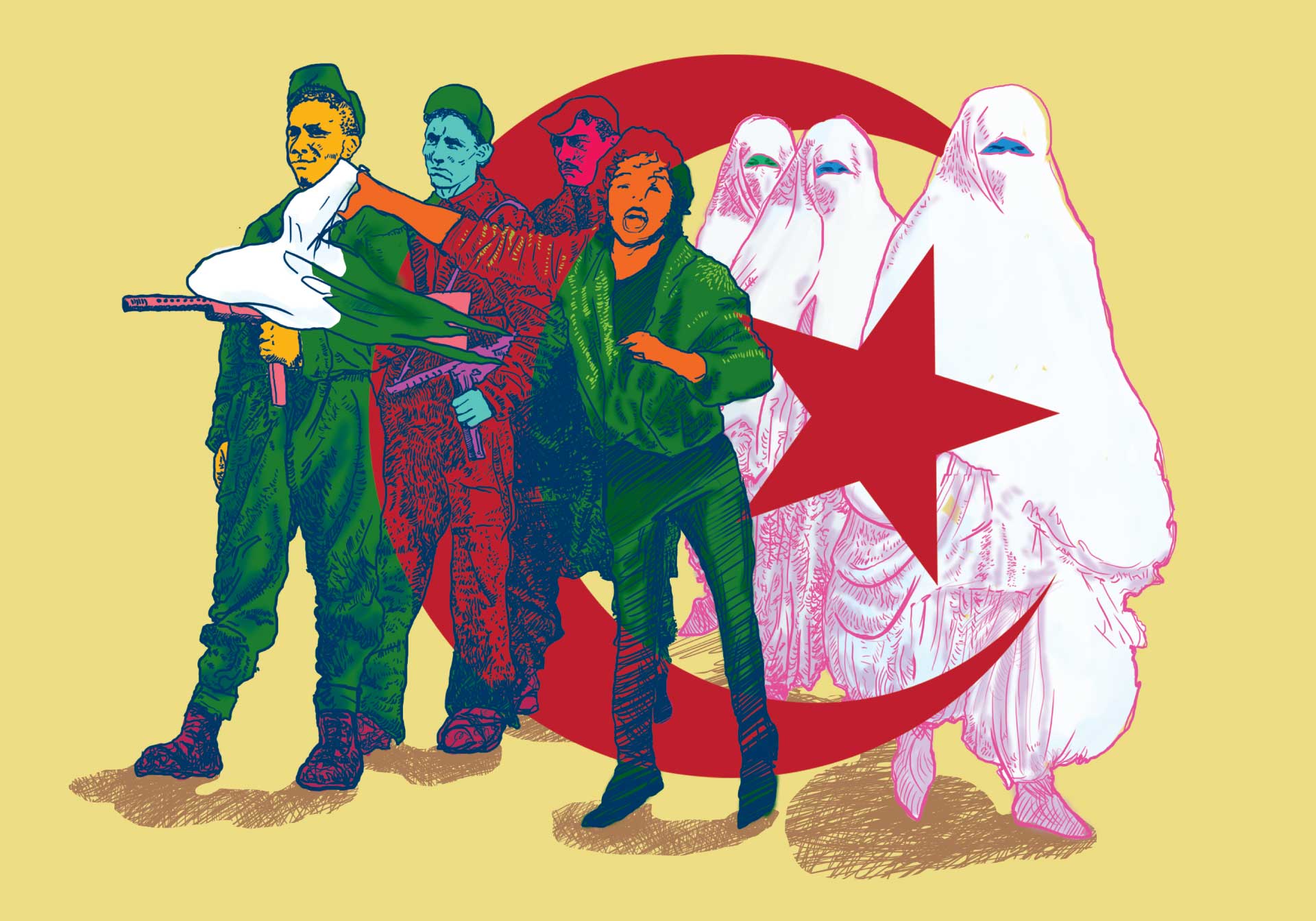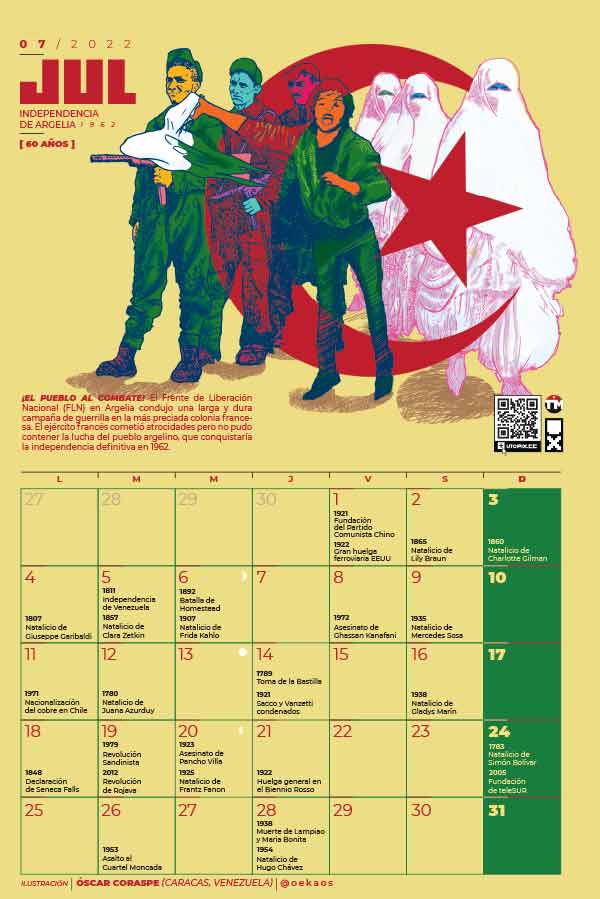ESP – ENG

The independence of Algeria was one of the most important milestones of the anti-colonial and anti-imperialist struggle in the 20th century.
French rule over the important North Africa territory was imposed at the cost of repression and massacres since the third decade of the 19th century. Algeria was a “classic” example of imperialism. On the one hand a captive market for consumer goods, on the other a source of raw materials and labor in areas such as mining and agriculture.
The colonist population, though a small minority, monopolized most of the land, and especially the most fertile plots for wine production. In contrast, the native and Muslim majority lived in misery, without any right to self-determination, subjected to higher taxes than the settlers and to other humiliations.
After World War II, anti-colonial struggles accelerated in Africa and Asia, and Algeria was no exception. At the head of the movement was the National Liberation Front (FLN), which on November 1, 1954 declared an armed struggle for independence. But after losing its territories in Indochina, France was determined to keep its most important colony in Africa.
The following years saw plenty of bloody clashes. Although both sides were responsible for war crimes, the French army and especially the colonist militias committed massacres everywhere, applying collective punishments and spreading terror to stop the advances of the independence fighters.
For its part, the FLN under the leadership of Ahmed Ben Bella was improving its guerrilla struggle, especially in the urban centers. Its battalions were constantly on the move as they garnered support from the populations. At the same time, growing protests and strikes increasingly weakened the colonial occupation.
With the war becoming less and less popular both on the domestic front and in international public opinion, the French government of Charles de Gaulle was forced to negotiate with the FLN. The two sides signed the Évian Accords on March 18, 1962, ending hostilities and recognizing Algeria’s right to self-determination.
The agreements were approved almost unanimously by the Algerian population in a referendum, and the country declared its independence on July 5, 1962.

Click here to download the printable version of the calendar and hang it on your wall.
Text: Ricardo Vaz. Artwork: Óscar Coraspe.